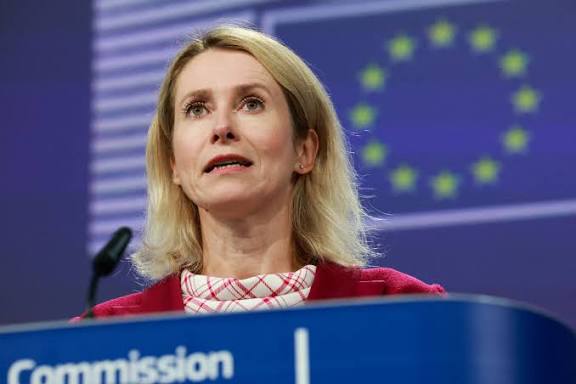By Eniola Amadu
The European Commission, the executive arm of the European Union (EU), has unveiled a long-delayed proposal to suspend certain trade provisions with Israel in response to its military operations in Gaza.
The plan, announced on Wednesday, also recommends sanctions against two far-right members of Prime Minister Benjamin Netanyahu’s cabinet — National Security Minister Itamar Ben-Gvir and Finance Minister Bezalel Smotrich — as well as against violent Israeli settlers and Hamas.
Under the proposal, the EU would halt bilateral support to Israel, with the exception of assistance to civil society groups and Yad Vashem, the World Holocaust Remembrance Center.
READ ALSO: Mississippi halts maternal health data collection after Trump CDC shakeup
According to the commission, the measures follow a review of Israel’s compliance with Article 2 of the EU-Israel Association Agreement.
The review concluded that Israeli government actions breached provisions relating to respect for human rights and democratic principles, giving the EU the legal right to suspend the agreement.
The commission cited the worsening humanitarian crisis in Gaza, the blockade of humanitarian aid, intensified military operations, and Israel’s decision to advance settlement construction in the E1 area of the West Bank as violations that undermine the two-state solution.
European Commission President Ursula von der Leyen said the EU’s position was driven by humanitarian concerns.
“The horrific events taking place in Gaza on a daily basis must stop. There needs to be an immediate ceasefire, unrestrained access for all humanitarian aid and the release of all hostages held by Hamas,” she said.
She added that the EU’s response would focus on suspending trade concessions with Israel, sanctioning extremist ministers and settlers, and pausing bilateral support while maintaining engagement with civil society and Holocaust remembrance institutions.
However, the proposal currently lacks the required support from the EU’s 27 member states.
Diplomats say divisions persist within the bloc, with countries such as Spain and Ireland backing stronger economic and military restrictions against Israel, while others, including Germany and Hungary, remain opposed.
READ ALSO: Trump urges EU to impose 100% tariffs on India, China to pressure Russia
The debate comes after a United Nations inquiry earlier this week concluded that Israel’s campaign in Gaza amounted to genocide.
Despite this, EU ministers meeting in Denmark last month failed to reach a common position, even as the bloc’s aid chief urged them to adopt a response that reflects European values.



